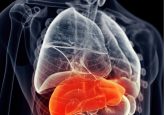Biomarkers in prostate cancer: time for a new approach?
Two biomarkers have been identified that oncologists hope will improve their ability to predict which prostate cancer patients will experience recurrence after surgery, long before the development of visible cancer elsewhere in the body.
In a collaboration led by Andrew Hsieh (Fred Hutchinson Cancer Research Center, WA, USA) and involving researchers from the Fred Hutchinson Cancer Research Center, University of California, Los Angeles and University of California, San Francisco (both CA, USA), high levels of YB-1 and MTA1 proteins were observed to be associated with prostate cancer recurrence and increased likelihood of needing further treatment, such as hormone-blocking drugs or radiotherapy. Furthermore, adding YB-1 and MTA1 levels to clinical factors currently used to predict prostate cancer recurrence improved predictive potential.
YB-1 and MTA1 were previously identified as potential biomarkers in a study conducted at the University of California, San Francisco by Hsieh in collaboration with Davide Ruggero (University of California, San Francisco), in which new technologies were utilized to measure changes in protein production occurring independently of any changes to mRNA. This recent study has been described as the clinical application of those findings.
It is hoped that these findings may lead to improved care for prostate cancer patients, in addition to strengthening the hypothesis that control of protein abundance has the potential to produce a rich source of cancer biomarkers. “We have the opportunity to revisit the topic of biomarker discovery in a completely new way,” stated Hsieh. “It’s great to be working at the forefront of basic research and clinical medicine here.”
Sources: Sheridan CM, Grogan TR, Nguyen HG et al. YB-1 and MTA1 protein levels and not DNA or mRNA alterations predict for prostate cancer recurrence. Oncotarget. (2015) (Epub ahead of print); Fred Hutchinson Cancer Center press release




